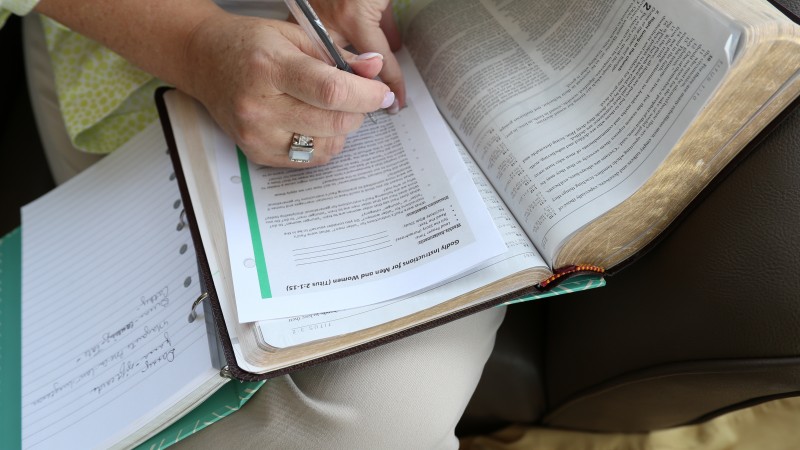Jesus Christ was a great story teller. He taught in parables. When He was alone with His disciples, they would discuss the parables that Jesus told. I’m sure that Jesus was a great facilitator of these discussions.
Everyone can learn to facilitate a Bible study. In our D-Groups, a different person should have the opportunity to facilitate the study every week. Each person who facilitates the Bible study should want to lead the group in the best discussion of the Bible ever. The role of the facilitator should be taken very seriously.
A Bible study facilitator is not required to study that Bible text as a teacher would. However, he or she must look over the Bible text and the study guide questions in preparation for leading the discussion. Begin with the end in mind. As you read over the study guide questions, decide where you want the group discussion to go and focus on the questions that will help you lead the group there. Think about follow up questions you may want to add to the original question to get the discussion going.
The less talking the facilitator does, the better it is. The facilitator’s job is to get everyone in the group to join in discussing the Bible passage. All members of the D-Group will learn from one another by discussing the questions in the weekly study guide.
The facilitator is not a teacher, but the responsibility of the facilitator is very important. The responsibilities of the Bible study facilitator include:
Ask the study guide questions with intention. The questions transition from informational to personal in nature. The beginning questions may be answered quickly, but the later questions should provoke more thoughtful discussion and personal testimony. Know where you want the discussion to go and lead them there. Ask follow-up questions when needed.
Lead the discussion purposefully. It’s not necessary to ask every question in the study guide. More questions are provided than you might need. However, there are some questions more personal in nature that need to be discussed. Lead the group to take more time on these questions, and be sure NOT to skip them. When time constraints are an issue, you will need to carefully choose a smaller number of the questions that you want to discuss. If your time for Bible study is brief, you many want to use the top three or top five method. Ask only the three to five questions that you feel are most important for the group to discuss.
Get everyone in the group involved. Some in the group will be eager to jump in the discussion. For those more timid, the facilitator may say: “I’d like to hear what (insert name) thinks about this question.”
Stop someone from dominating the discussion. It’s possible that someone in the group is overeager to join in the discussion and impress the group with his or her Bible knowledge. In that case, the facilitator might say: “I’d like to hear what someone besides (insert name) thinks about this question.” You can say this lightheartedly and tactfully so as not to be offensive. You may also need to meet privately and kindly with the individual to share the importance of giving everyone time to share in the discussion.
Keep the discussion on point. In group discussions it’s not uncommon to get sidetracked. The facilitator will need to bring the focus of the group back on the question being discussed.
Be truthful, positive, and transparent. There will be times when someone in the group may share ideas contrary to sound Bible doctrine. Stay positive. Avoid argumentation. Affirm the individual’s openness to share his or her view. And above all, be truthful and clear about your own biblical interpretation and convictions. Also be transparent and share openly in questions that are personal in nature. You need to model openness and honesty in these areas.
Be sensitive to the Holy Spirit. As a D-Group grows closer together, some in the group will become more open in sharing personal struggles and challenges. Be sensitive to the leadership of the Holy Spirit in dealing with these situations. At times, it will be appropriate to stop and pray immediately for a D-Group member and to take extra time to minister to his or her need. Remember at all times to be CONFIDENTIAL regarding the personal things shared in your D-Group.
As the D-Group leader, you will want to be the Bible study facilitator for the first few weeks after the group begins meeting. It will be important for you to be a good role model as a facilitator.
Because our main goal is to reproduce disciples, everyone should be trained and given opportunities to facilitate the Bible study. Be sure to coach and encourage each person who facilitates the group.
Always conclude the Bible study with a closing prayer. Pray specifically for the group to personally apply the Bible truths they have just discussed.


